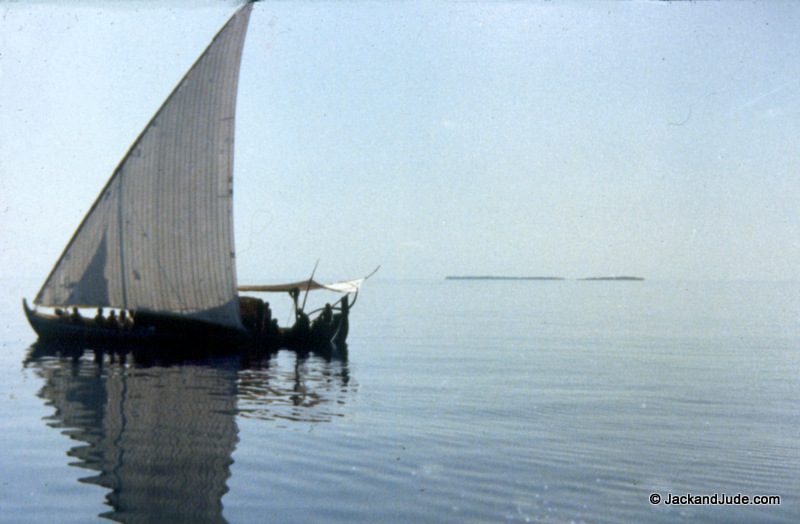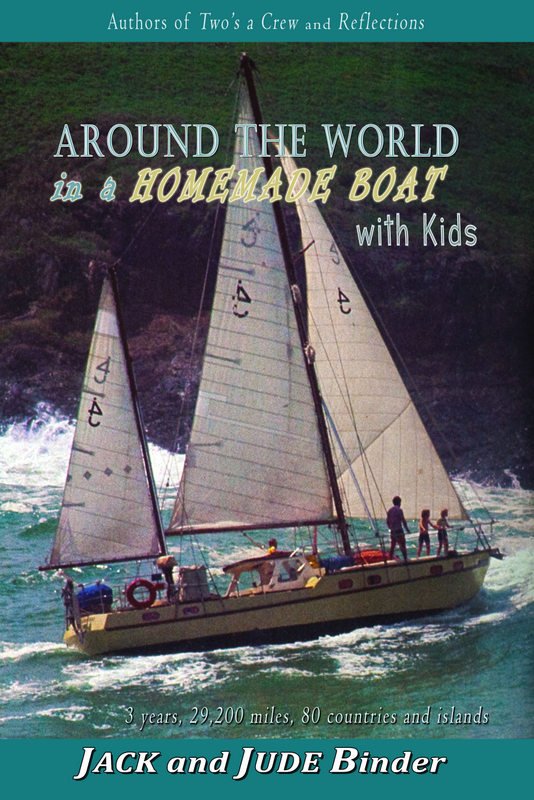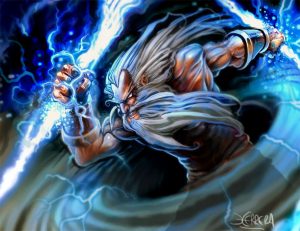December 2021 November 2021 >>
Blog of Jack and Jude
explorers, authors, photographers & videographers
Season’s Greetings…
ENJOY THE HOLIDAYS – Take an excursion in NATURE
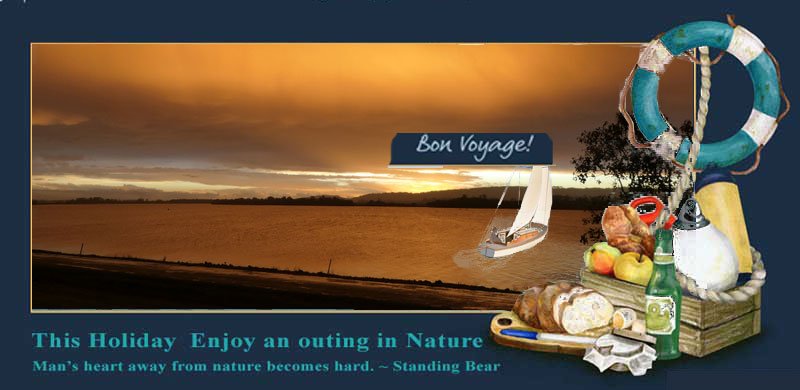
Here’s a Cheery Hello on Christmas Day
to let you know that we safely reached our journey’s end
and are now on board Banyandah in Strahan, Tasmania.
Changing Hats 2021
Life – A Perilous Journey
 As we navigate across states rampant with the new, easily-spread Omicron variant, we stop to reflect on the tragic loss of six young lives in Tasmania. Lives that were ended by an explosion of Nature striking while they were celebrating the completion of a milestone. Sweeping the children up higher than a building on a powerful gust—then gravity took away their youthful lives.
As we navigate across states rampant with the new, easily-spread Omicron variant, we stop to reflect on the tragic loss of six young lives in Tasmania. Lives that were ended by an explosion of Nature striking while they were celebrating the completion of a milestone. Sweeping the children up higher than a building on a powerful gust—then gravity took away their youthful lives.
I have lived when classmates died around me, and after the pain passed, I found a greater will to survive along with a heightened awareness of danger.
Sailors know the power and danger of Nature. Our challenge is to harness Nature’s strength–using our wits, balance and muscles, while protecting our health and wellbeing of our ship. Many in our profession have experienced explosive encounters with Nature and one we’ll always remember flicked Banyandah upside down in ginormous winter seas. Sails shredded, windows shattered, and half the dodger top torn away. Every sailor has frightening moments, that’s why we know—It’s best to be cautious than battling to save lives.
Stepping on board Banyandah after six months a landlubber,
the touch of bare feet against cockpit sole launched images of white breaking seas attacking the quarter and a bulk-tanker blocking stars astern, the southern cross bright amongst an infinite black sky pricked by shimmering starlight. This sharpened into my job working with Nature and that brought a wondrous feeling of power and freedom. All of a sudden, my body yearned for the work, the physical activity. Turning the helm, the rudder moved easily since last touched months ago, and that fired up thoughts of adventures within reach. And then felt gratitude to be at journey’s end, safe, Covid free, with wilderness all around.
Next to me, Jude spun around like a schoolgirl given a lolly. Arms outstretched, so elated by the results of her setting out charcoal briquettes that stopped mould growing on her curtains. Both of us laughed. Hooray for Sailors. Among the very fortunate connected to Earth and Nature and humanity.
Jack and Jude sincerely hope your Christmas is wonderful and that the coming New Year finds humanity going forward embracing the Natural world.

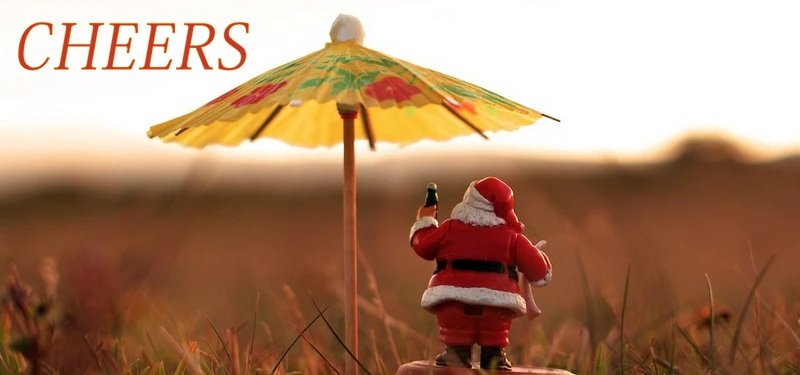
Holiday Reading
Last weekend, we invited new neighbours over for a dinner party and an evening of home movies. After our scrumptious meal of fish and steak with various salads and charred sweet potatoes, we took servings of Jude’s yummy raspberry trifle topped with macadamia ice cream upstairs to settle in front of the wide screen.
Knowing our guests loved Nature and wild places, we’d planned to show our 2013 sailing expedition that searched for the wreck Duroc at Mellish Reef in the far reaches of the Coral Sea. To introduce the film, I ran through a bit of our history that lead to completing five Dx-peditions, taking us twice to Mellish Reef.
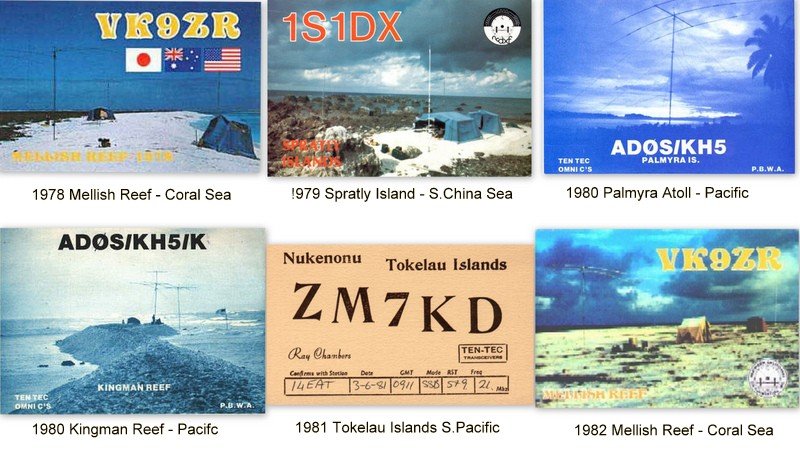
Mentioning our expeditions brought up Sri Lanka 1978, where Harry Mead offered us our first oceanic expedition. As I spoke, vivid memories flashed before me of my young family living hand to mouth, afloat in faraway countries. Our boys, then 7 and 8, were fiery little demons. Then I pictured a quiet little girl, lost in a strange foreign world, living afloat with her father in Galle Harbour, and that got me telling our guests the story of Vanesa. It’s such a cute story we put it in our last book.
from AROUND THE WORLD IN A HOMEMADE BOAT with Kids
Demonising Duo
Taken from diary notes recorded in 1978
A porcelain teapot decorated with temples and mountains stood steaming on the cockpit seat, so when asked, I settled in for a cuppa.

John grooving on music driving Banyandah
One of the first things that John told me is he built his yacht in Japan, and at once my ears pricked up, and I encouraged him to go on. Seems John had lived in Japan for eleven years, arriving there from a desire to see the country and fell in love with Japan the very first moment he landed. Because of his sharp western good looks, he straightaway found work as a male model for television and magazines. As a result, he began adopting a completely different way of life. John stayed and worked his last years as an English teacher and translator. Fascinated, I egged him on for more details, and learnt that he was fluent in Japanese; even proficient with the three forms of their writing. John next mentioned being married in Japan, but not to a Japanese woman, but to a Scottish lady he met there in the same business. He somewhat shocked me next by saying that they had a child.
“Child?” I questioned.
John had a quiet nature highlighted by thoughtful, unhurried movements that formed part of his charm. Poetically moving forward after my query, raising his eyebrows, he turned and called through the companionway.
“Vanesa.”

Making toy sailboats from trash
Half an hour later ~
“Hey Jerome, let’s go,” Jason called, shovelling the last half of his sandwich into his mouth. And in a flash, both donned briefs and were over the side.
Splash, splash, they sped like torpedoes for our new neighbour while Jude and I watched through the half-opened curtains of the saloon windows.
They swam once around the boat, then struck up a conversation with John’s brother Melvin, relaxing against the cabin top. We heard their voices loud and clear, so it wasn’t surprising to see John and Hatako appear.
We saw John’s hand beckon them aboard, and without hesitation, our two fiery demons were pulling themselves out of the water by climbing up the stays.
Busy again, looking only occasionally until we saw fresh tea and cakes brought out.
Next to catch our attention, Jason and Jerome let out loud yelps, followed by an even louder splash. We’re back at our windows in time to see the Two J’s scrambling back onto John’s boat. In a fun action scene, both raced in a flurry up the ratlines, where next, as expected, Jason, the first to mount the top bar, pounded his chest in a double-fisted war cry before jumping, wiggling, shaking and yelling then disappearing into the water in a huge splash.
Phew! One gone. Next, number two.
Jerom dive-bombed his brother then they swam noisily around the boat before climbing up to do it over again. Our sons’ outright display of having fun proved so infectious, Melvin soon joined their circus that quickly exploded into a howling free-for-all. Feeling pangs of jealousy, but best to let the boys have their own happening. So, Jude and I just stood watching at the galley window.
Hours later, our sons returned from their visit, both excited about the Japanese boat and the strange things on it.
“They have bamboo down below.” Jerome had rushed to tell his mother. “There’s a whole wall of it.”
“Yeah,” Jason yelled, “and their cups are made from bamboo too. Only bigger! Remember the cakes, Jerome.”
“Yeah, I saw you drop yours, Jas. You squashed it on the seat.”
“I did not!”
“Hey!” I called, “What about the girl. Did you meet her?”
“Oh her,” Jason said with an exasperated expression. “She didn’t talk.”
“Why? Couldn’t you get her into your fun?”
“Oh, she didn’t want to. John asked, but she only said No! Is she Japanese, dad?”
Next day, the boys harassed their mum to finish school fast, and straight after dismissal, with a fresh ker-splash, they raced for the blue boat floating close by. Galle Harbour is a tropical place, so why row when you can swim?
Quickly there, John welcomed them aboard for a repeat ceremony of the day before; tea and cakes in the cockpit—this time Hatako performing the service, with Vanesa present, looking every bit as Japanese.
A boatman’s life is not just filled with idle time, so, watching briefly, I set off to put something right.
An hour later, I heard them frolicking again, first with a yelp followed by a splash. Peering through the window this time, Vanesa is under the awning by the mainmast. She wasn’t taking part, but silently watching with keen eyes, and I wondered if she could swim.
At lunch, I asked the boys.
“I don’t know,” Jerome answered. “She never says anything if we speak to her.”
“She only talks Japanese to John and Hatako,” Jason added.
Fuelled by lunch, they were off again, this time in the dinghy carrying their scrapbooks and two of our photo albums showing them in various places. So Jude and I took up positions at the galley windows again. Setting out the ubiquitous pot of tea, they gathered around the albums—Vanesa quietly to one side, looking, but not appearing to look.
With no wind that scorching afternoon, the heat lay heavy as if a lamb’s wool blanket smothered the harbour. And though no busier than sorting through a cupboard looking for a particular book, perspiration flowed freely down me. That’s why it didn’t surprise me a few minutes later to hear a renewal of that whiz-bang game of who can splash the biggest.
Looking again, both boys are yammering to Vanesa, taunting her, accompanied by lots of yahooing and cacophonous fun. Then, to my surprise, I saw her composure slip, weakening. Her eyes searched out John, and her lips spoke. Not that we heard anything. But I could guess and was soon proven right. A consultation took place between John squatting on his haunches and the boys who were treading water just below him.
My curiosity is running wild. So is Jude’s, who strained for as good a view out the other window.
John disappeared, gone just a minute before reappearing, carrying a yellow life jacket, and Jude chuckled. “Bet she’s going in.”
The next scene you can guess; John dressed Vanesa in that bulky life jacket, making her as big as a block of ice. Then carefully, not to make a splash, lowered her overboard next to the boys where, lifeless, she just bobbed around as if a yellow can-buoy anchored to the bottom.
Oh no, this wouldn’t do. Not for two boys with wind-up motors going full tilt. No, they started bombarding her with instructions illustrated with flamboyant actions showing how she could move around. Great pantomime through the windows watching them try to get Vanesa mobile.
First off, Vanesa never kicked like Jerome showed her in his wild display of a Mississippi paddle wheeler. Nor did she ever stroke with her arms as forcefully as Jason had urged her to. No, though she smiled and once laughed, her efforts to become mobile were pitiful and weak.
Then one boy must have thought, “Well, if she won’t move on her own, we’ll drag her.” Because when next we looked, they were pulling her through the water, each with a strap in their hands.
No, the ties around her didn’t pull loose. I’m sure John would have tied an extra granny knot or two before setting Vanesa down with the boys. And just as well too, because they towed her as if a bigger version of one of their toy boats, and for an instant, we heard, “boat, boat, boat,” just like they’d called out when playing as toddlers.
Later that day, their report bubbled with excitement. No, Vanesa could not swim. John had told them she had always been afraid of the water. No, Vanesa still won’t speak English, though she started telling them yes or no.
Hearing that, I thought about how her actions emulated one of those Asian power plays, and I smiled because my boys were so unsophisticated, it went right over their heads.
But, as Judith later said, “What’s it matter. They’re having fun.”
Of course they were. But as the play unfolded, it proved me correct.
The next day after lessons, Vanesa allowed herself to be talked into going for a tow around the harbour. But this proved old news. So, they returned and borrowed John’s dinghy to row her around.
What a laugh—the two boys, side by side, each with an oar in their hands, facing Queen Vanesa in the stern sheets, head high aloof above the bulky yellow life jacket, directing them which way to go with an outstretched hand. And the boys, her slaves, eager to please.
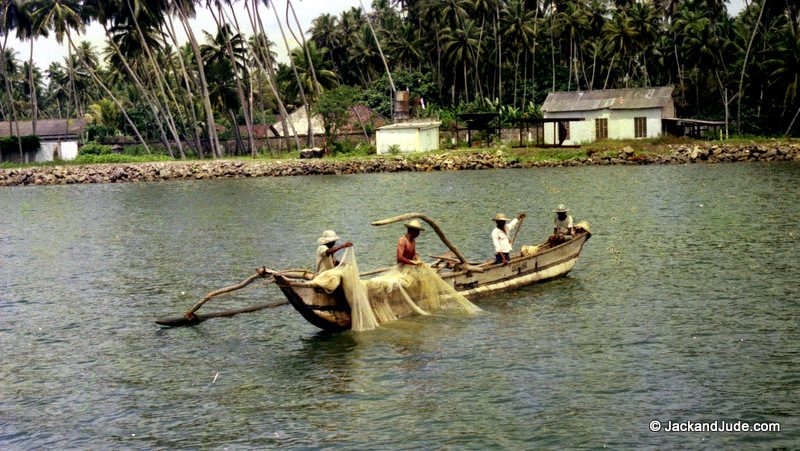
Galle Harbour fishermen next to anchorage
Father John had lived a varied and exciting life, but when we first met him, he was in something of a pickle because of his boat, which he didn’t like, and because of his daughter whom he loved. His grand plan; reach England, sell the boat, normalise his daughter. Those first few days together, we talked a lot about how he’d do that, and what he’d do afterwards. An amiable man, easy to like, we developed a great fondness for him.
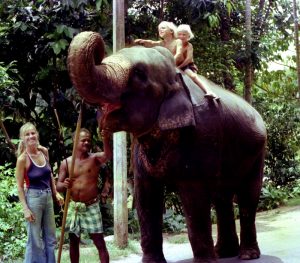 A week later, when sitting in the quiet of our aft cabin sorting through charts and making a list of ports for our voyage to tackle our very first Amateur Radio DX-pedition, I realised we’d have a few months on our hands before the wind patterns changed to allow us to get underway back to Sydney.
A week later, when sitting in the quiet of our aft cabin sorting through charts and making a list of ports for our voyage to tackle our very first Amateur Radio DX-pedition, I realised we’d have a few months on our hands before the wind patterns changed to allow us to get underway back to Sydney.
With that realisation came the idea of sailing to the Maldives Islands for some diving and laid-back fun, as a holiday before the long six-thousand-mile sail back to Sydney and the hard work of the expedition.
The previous year, on my first crossing of the Indian Ocean to deliver the Burong Chamer to Europe, I had stopped at those fabulous atolls, finding the diving absolutely the best. The atolls lie around four-hundred miles southwest of Sri Lanka, and since we had plenty of time, it seemed crazy not to share such an exotic place with our sons. With a round trip to those scattered isles in mind, I began wondering whether Vanesa would like to come along. She just about ruled our two sons, giving her royal consent with a nod to various plans the boys dreamt up.
She still wouldn’t speak English, but laughed a lot more and showed an ability to get her own way.
So, over lunch with John on board Banyandah, I relayed what had transpired with our Amateur radio friend a few nights earlier, and said, “We’re off to the Maldives for a month of fun. How about letting Vanesa come along?”
“The Maldives,” John repeated in his slow, thoughtful manner, “good diving, I hear.”
“The best,” I replied. “How about it? She gets on really well with the boys.”
“Well, it’s okay with me. But I don’t think she will.” And John’s bushy eyebrows rose, emphasising what he’d said by forming a sad smile above his sparkling blue eyes.
John put the question to Vanesa that very afternoon, and to his, and our surprise, Vanesa said yes.
I’m a man of considerable impetuosity, meaning I often jump before I think, so it wasn’t until after Vanesa said yes that I began to worry over her well-being. In my mind, I still thought it was a good idea. But thinking more, it needed John coming too, which is why later that same night, I explained my thoughts and asked him to come along too. And he, after that typical moment of silent reflection, became enthusiastic and said yes.
I’ll not go into all the details of our voyage to those coconut-clad isles and the wonderful time we spent in Nature’s Wonderland. You have enough imagination to picture Banyandah floating upon a transparent sea, seeing colourful corals in crystal-clear water, lapping white sandy shores with swaying coconut palms. Each island a diamond set in a ring of many diamonds. Eleven rings in total spaced tightly like a queen’s sparkling tiara. Imagine being in your own boat meandering past thousands of the same idyllic tropical isles that go on and on, one after another, for nearly a thousand miles. There is no other group of islands like it on planet Earth.

1978 School at Maldives
We had contact with the Maldivians at Male, the islands’ capital, and then at a wedding on one of the outer atolls. But the most fascinating part of our trip occurred while idling away at one of the many uninhabited islets. Out there in Nature’s wonderland, Vanesa’s transformation took place.
When we departed, Vanesa was still the perfect little Japanese girl in a European body. She carried herself with an aloof, stiff pose and would not speak English, except to say yes or no to the boys. Nor would she acknowledge when someone spoke English to her. Except, when pushed by her obstinacy, John would yell at her in English. Then she’d jump to do whatever he demanded. But, when one of our sons asked if she wanted something particular, for a moment she’d pretend that she had not understood. Then out would pop a short ‘bleep’ followed by a nod or shake of her head.
We tolerated this because it wasn’t really a problem and ever so amusing. Seriously though, Vanesa was going through an identity crisis, which we thought she handled very well. For all of her life, Japanese things had surrounded her. Every culture shapes their people. But out of those we’ve experienced, the Japanese culture is the strongest, especially on the young, where duty and honour are heavily used to tame individual human spirit, replacing it with “esprit de corps”.
So, taking her from that, especially on a boat, which itself requires a significant change, became quite a drama. Add to that-just a month after leaving Japan, she meets our two explosive lads.
Confronted by two demons who obviously were her own kind, but just as opposite as any kids could be; wild, vociferous, fun-loving, our sons showed emotion, had thrown her into a blender spinning madly.
Day after day at those idyllic isles of fun, we watched Vanesa’s facade crumble bit by bit. At the outset, she religiously studied her Japanese characters, but one day became bored with them. Then, when she asked one of the boys something in English, it spun me around to face her. What I’d heard was a Japanese child attempt to speak my language, and I couldn’t help giving her an affectionate hug for the effort she was making.
As we explored those lovely coral isles, she spoke more and more English, until she dropped Japanese altogether and sat a few times with Jude, listening to the boys reading their English lessons. In the time this took, the boys were busy shaping the other side of her life. Daily, in the shallows, the three children worked away until we heard, “Look John, I can swim.”
Gleefully, she dog paddled around the boys who were so happy with their pupil they were throwing handfuls of water into the air.
In the short time we were away, Vanesa lost all her Japanese mien. Her hair grew frizzy wild with the daily dunking of salt, and her pasty white colour vanished. The change became so complete towards the end, she refused to speak her first language, and gave up practising the thousands of lovely characters, and with that, her stiff composure vanished as well. In fact, watching her running with as much abandonment as our duo along those deserted Maldivian beaches, they had demonised her into one heck of a cute tomboy.
At the time, it seemed a bit of shame she should abandon so much. But three years later, when we visited them in Japan, John building a new boat, her change seemed to have given her a bolder grip on both of her worlds.
Around the World in in a Homemade Boat with Kids
ELECTRONIC VERSION:
eBook Now Available in Epub and Mobi format….. AUD$12.25 ~
140 colour photos and maps ~ Immediate download
[MORE INFO]
PAPERBACK:
500 Pages – 140 photos and maps.
$45 AUD includes Delivery Worldwide
[More INFO]

World Gone Mad ~
For what it’s worth, it seems developed economies all depend on people spending money that they don’t have to buy a lot of things they don’t need. Even though we live in a finite world, we seem to require ‘growth’ at any cost and we’re using up the easily accessible resources as fast as we can. Someday this will change—because we’ll run out of potable water and food, or run out of room—or war will break out.
Presently, there are 7.9 billion people, growing by a billion every decade. Global birth rates differ between developed countries, where birth rates are often at or below replacement levels, and developing countries, where birth rates typically remain high. We hear a lot about climate change. But do we ever hear reduce world population? Unsustainable population growth through a lack of access to reproductive health care puts pressure on human communities, exacerbating food and water shortages, reducing resilience in the face of climate change, and making it harder for the most vulnerable communities to rise out of intergenerational poverty.
Different Future ~
Jack and Jude see a different future. One based on the evidence that no galaxy exists with the essentials of life, like air and water. And there are no super-smart extraterrestrials coming our way to put all right. What we have is all we have—a dying planet choking on human waste. Like a virus, we’ll either kill the host, or it’ll kill us—either way, we’re dead. Ding! – Time for action stations.
So what do we do? ~
Having travelled most of the world, Jack and Jude know that the greater majority hold a belief in God, Jehovah, Allah, Bhagavan, the Creator—call it what you like. But spiritual beliefs based on what humans wrote centuries ago divide us.
The one truth above all this is the wonder, majesty, and power of Earth and creation of life. Jack and Jude believe we humans are unique for a reason, and it is not to dominate, but to find harmony and balance within the creation so we can become one with its secrets. Maybe then we’ll attain the higher knowledge needed to understand the why?
To reach universal nirvana, humanity will need to tolerate each individual’s religious explanations and together worship Earth as tangible evidence of a force far greater than our mortal souls. Jack and Jude ask you to join us in reverence for Earth and strive for balance and harmony by supporting organisations campaigning for population stabilisation.
In a Nutshell ~
Believe in any deity you wish, but above all cherish Earth as the creation. Put Earth First in all decisions. That means we need to establish targets to reduce our impact by reducing our population.



